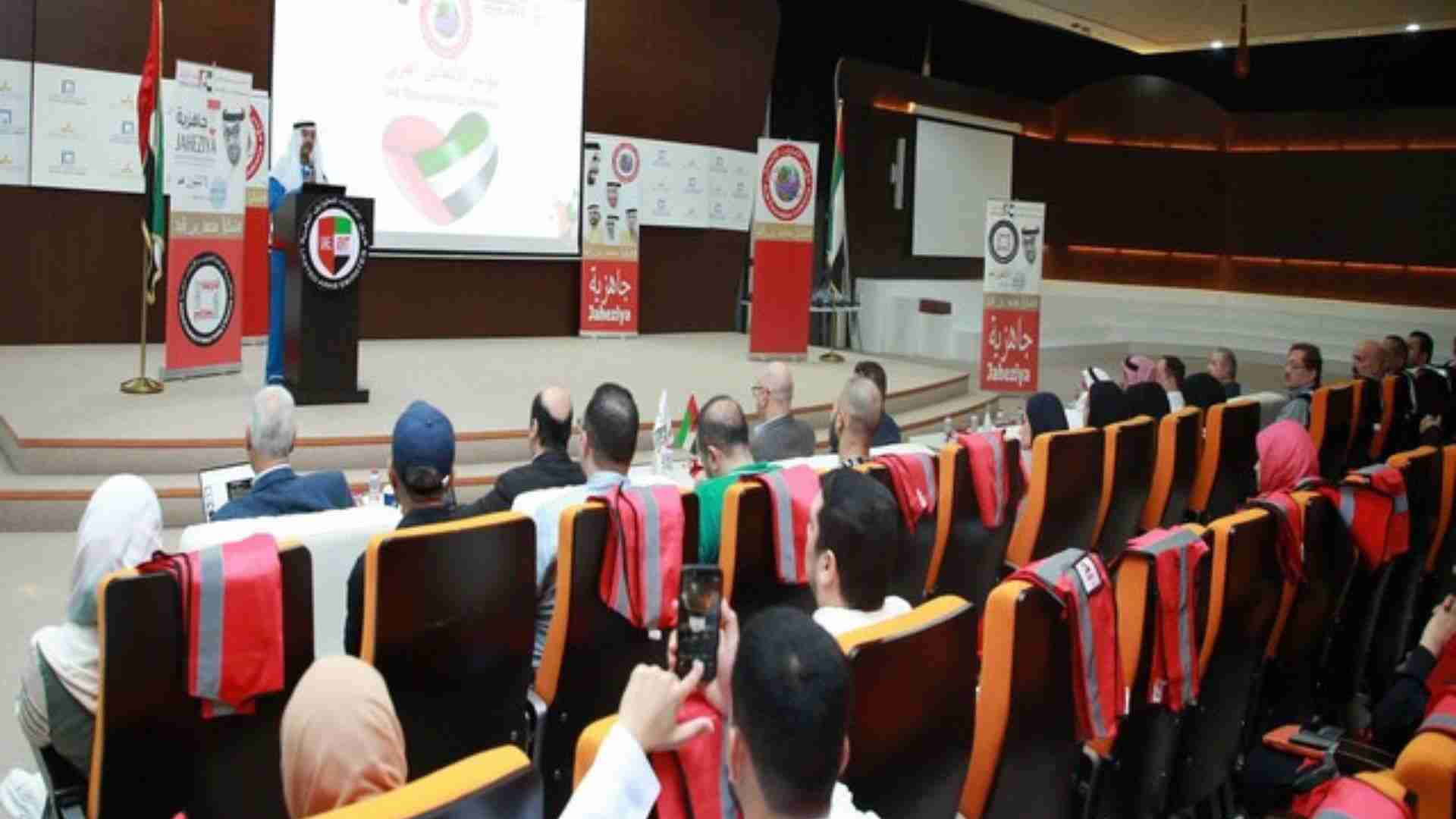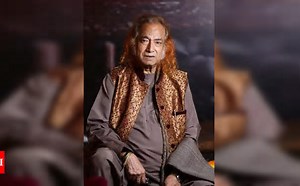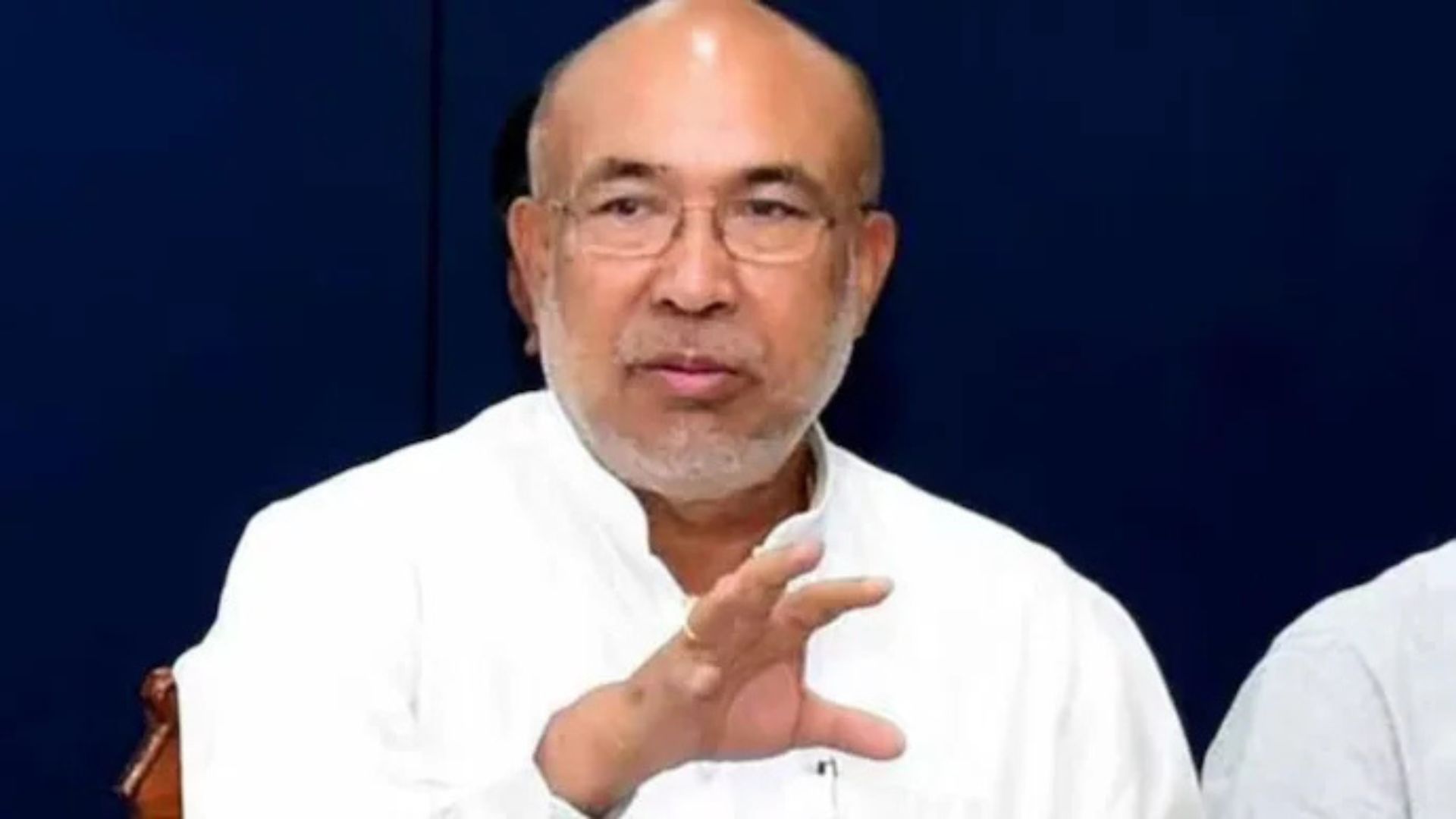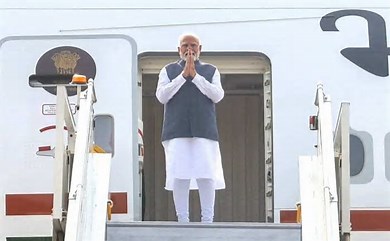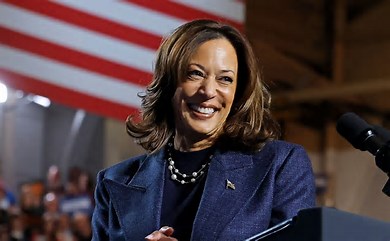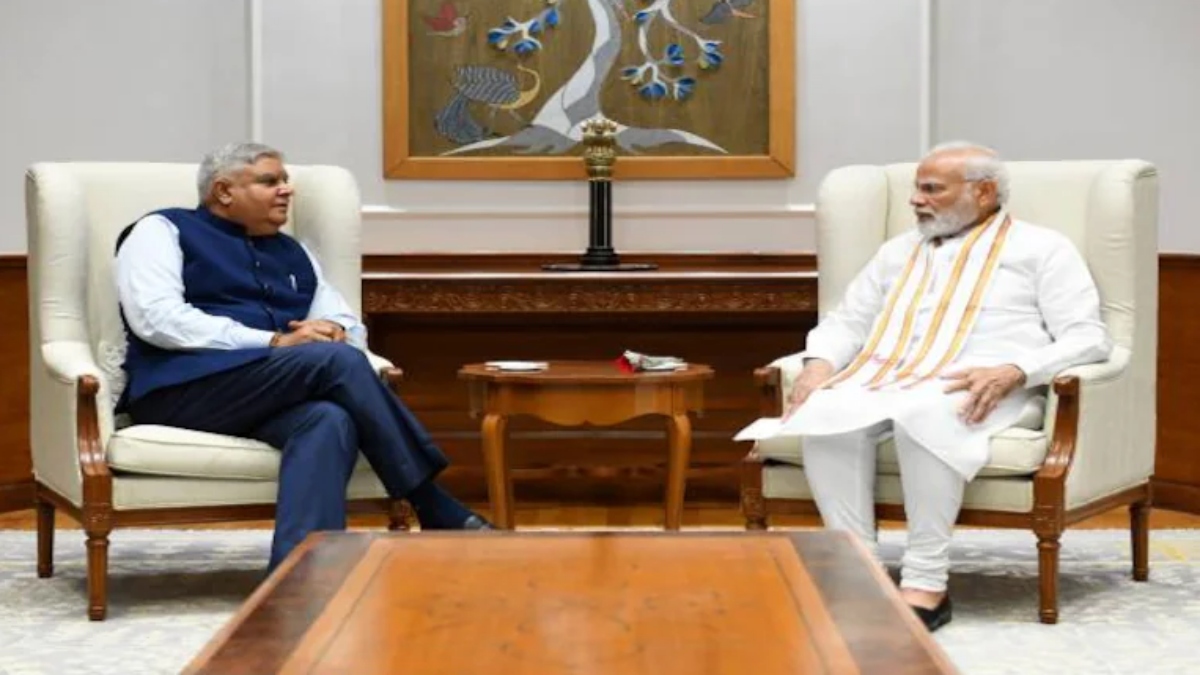
The Presidential ballot has been cast and while the votes are still to be counted, the result is clear—Draupadi Murmu is all set to be the country’s first tribal woman President. Her candidature has got support beyond the NDA vote bank, with the BJD, Shiv Sena, YSRCP, JMM and other non NDA parties supporting her bid. In terms of signalling the BJP has made a smart choice in the former Governor and BJP leader. However, one could argue that while the President’s choice was all about optics, the real message lies in the BJP’s choice of Vice President: the former Governor of West Bengal Jagdeep Singh Dhankhar.
First let’s look at the symbolism. Dhankhar is a Jat from the poll-bound of Rajasthan, he has also been described as a kisan putra by BJP President J.P. Nadda, and as we know, the farmers’ lobby is one that the government is keen to woo, post the farm reforms bills episode. The upper caste that has been the BJP’s traditional vote bank, and which was feeling apprehensive with Narendra Modi’s big push to woo the OBCs will also feel reassured with Dhankhar’s candidature. Now the individual. In his role as Governor West Bengal, Dhankhar combined an ace legal mind with a nuanced understanding of the Constitution and managed to keep the feisty Mamata Banerjee on her toes, often getting the better of her. This kind of smart politics is exactly the kind of game that appeals to the Modi-Shah duo. In Dhankhar they have also found the kind of politician they would like to see in the BJP of today. A street fighter, who doesn’t shy away from rolling his sleeves. This is not to say that Dhankhar doesn’t have his diplomatically correct moments, for he enjoys immense cross party goodwill, even with some members of the TMC. In fact, when they are not at loggerheads, he has had some very amicable telephone conversations with Mamata Banerjee as well. This goodwill will stand him in good stead when he is presiding over the Upper House where the BJP lacks the outright majority it enjoys in the Lok Sabha. Again, Dhankhar has a shrewd understanding of the legislative system, having been both an MLA in the Rajasthan Assembly and an MP in the Lok Sabha.
But to come back to my earlier point, the main takeaway from Dhankhar’s nomination is that he epitomises the kind of leadership that appeals to Modi-Shah. Now compare this to the Opposition’s choice of vice presidential candidate. Having lost the initiative in the Presidential election (as the party was busy with the ED summons in the National Herald Case), the Congress tried to recoup lost ground by agreeing to a Congress leader’s candidature. Only with Margaret Alva the party gained very little both in terms of optics and when it comes to rewarding loyalists. While the Alvas have always enjoyed a close relationship with the Gandhis, dating back to her mother in law Violet Alva’s tenure, Margaret herself has been a tad critical of Sonia Gandhi in her memoirs. For instance, she talks about the way former Prime Minister Narasimha Rao was treated by Sonia after his demise when his body was not allowed to enter the party headquarters. She has also accused Sonia of running the party in an “arbitrary” manner and stated that while Dr Manmohan Singh wanted her (Margaret) in his cabinet, this suggestion was vetoed “many times” by Sonia. Currently, every single TV debate on the vice presidential elections is digging up these memoirs and upping these comments. How does this help the Congress?
Interestingly, Alva’s name was suggested by Sharad Pawar and backed by Sitaram Yechury. The Congress had deputed Jairam Ramesh and Mallikarjun Kharge to talk to the other opposition leaders and arrive at a consensus. It seems as if the two Congress leaders went along with the name suggested rather than coming up with a counter name. As far as the messaging goes, Margaret Alva is a Christian from Karnataka. Back in 2002, when Atal Behari Vajpayee had wanted to promote another Christian, the then Governor of Maharashtra, P.C. Alexander as President of India, the Congress had opposed this move. The buzz then was that Sonia’s durbar had convinced her that if there is a Christian as President it would be very difficult for her to put in a bid for Prime Ministership. To Sonia’s credit, we all know how that story ended when she could have become PM in 2004 but refused that job. But the larger message here is that when one is choosing candidates for the President and the Vice President, there is a lot of politics and combinations that have to be taken into account because in the end, it is all about the messaging.

